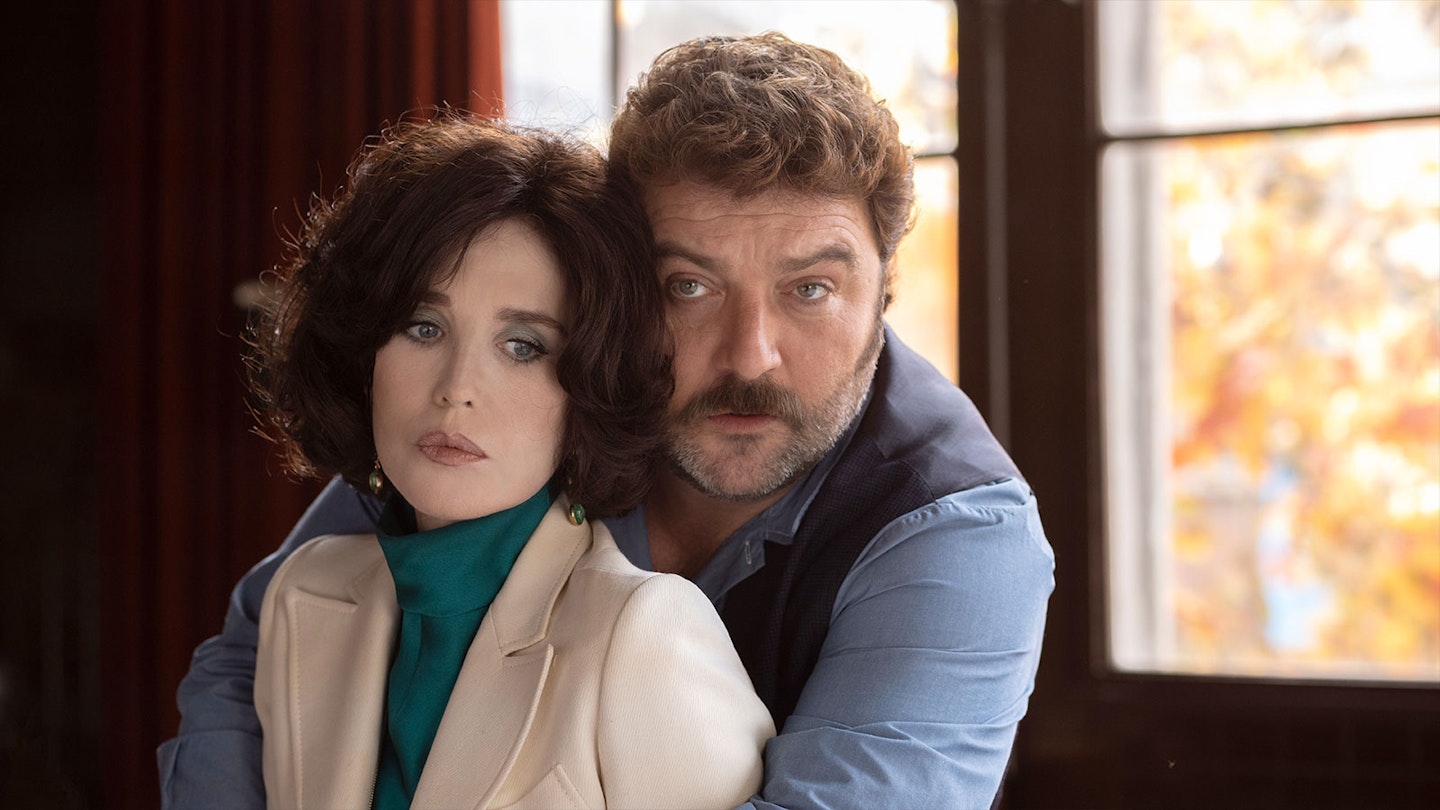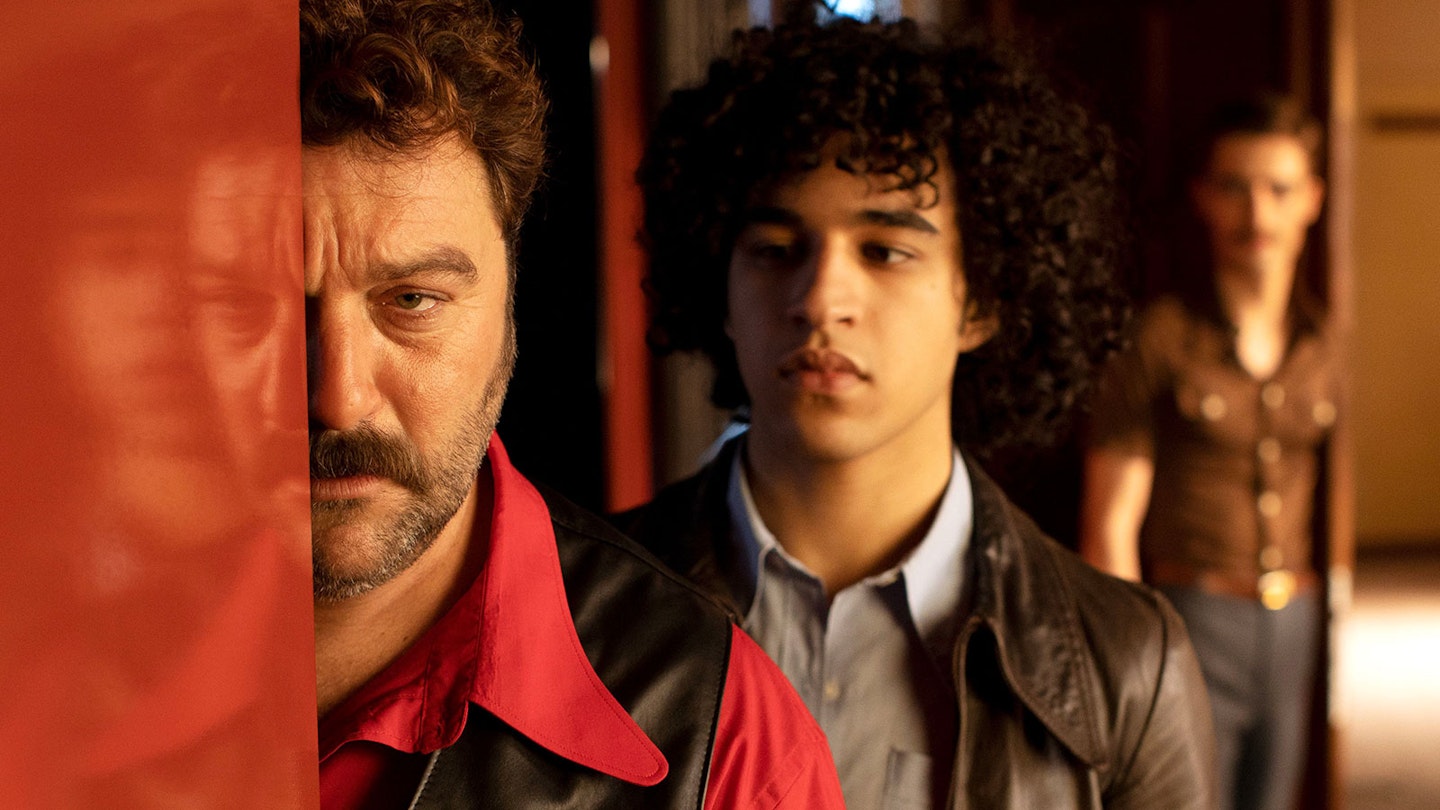Peter Von Kant begins and ends with photographs of iconic New German Cinema director Rainer Werner Fassbinder. François Ozon’s gender-flipped remake of Fassbinder’s The Bitter Tears Of Petra Von Kant is part hero worship, part deconstruction, a film that somehow straddles the sensibilities of both filmmakers, at once authentic and ironic. Ozon jettisons the serious, sober tone of recent offerings By The Grace Of God and Everything Went Fine for something more akin to the lightness of Potiche and 8 Women. The result is a small, enjoyable if slightly insubstantial slice of FFS (Fassbinder Fan Service).
Fassbinder’s original is set completely in one Bremen apartment and centres on a fashion designer (Margi Carstensen), who has a toxic relationship with her mute live-in assistant/slave (Irm Herrman) before finding an all-consuming love with a young woman (Hanna Schygulla, who cameos here as Peter’s mother) — it boasts a sado-masochistic streak that makes 50 Shades look like Bluey.

Setting his film in Cologne and in 1972 (the year of the original movie), Ozon cleaves close to the original story-wise but with a few important tweaks. Petra Von Kant is now Peter Von Kant (Ménochet), an out-of-favour film director struggling to get over a break up and write a script for Romy Scheider. Into his life, via his singer (and former lover) Sidonie (Adjani, the same sex as her counterpart in Fassbinder), comes Amir (Khalil Gharbia playing the Hanna Schygulla role), a gorgeous young actor who sets Peter’s life and loins on fire. In a departure from Fassbinder, Ozon plays Peter’s seduction of Amir as a casting session, Peter at one point grabbing the camera as Amir spins his (possibly bogus) life story, a director discovering his new inspiration. The relationship has doomed written all over it_._
This is Ménochet’s movie, invoking Fassbinder in look and temperament but never parodying him.
Ozon has left “The Bitter Tears” out of Peter Von Kant’s title and his film is a less tortured effort, riffing on the film’s original themes (ageing, vanity, the destructive nature of muses) in a slightly more playful manner. Stefan Crépon registers as Von Kant’s manservant, saying tons with body language without uttering a single word, Isbaelle Adjani is a joy as Sidonie, a fading, flamboyant diva incapable of feeling a genuine emotion, and the impossibly good looking Gharbia lends Amir both teasing vulnerability and cold, hard cruelty. But this is Ménochet’s movie, invoking Fassbinder in look and temperament but never parodying him, superb at playing the joy of invigorating new love and the despair of drama queen heartbreak — watch him fully commit to a dance of desolation to ‘70s chanson ‘Comme Au Théâtre’.
It lacks the claustrophobic intensity of Fassbinder’s original and the thrill of Ozon’s best — his filmmaking is on point but rarely exciting — but Peter Von Kant is an entertaining French billet doux to a German titan. It’s a small-scale touching tribute, filled with equal amounts human tenderness and self-disgust, which is perhaps just what Fassbinder would have wanted.
